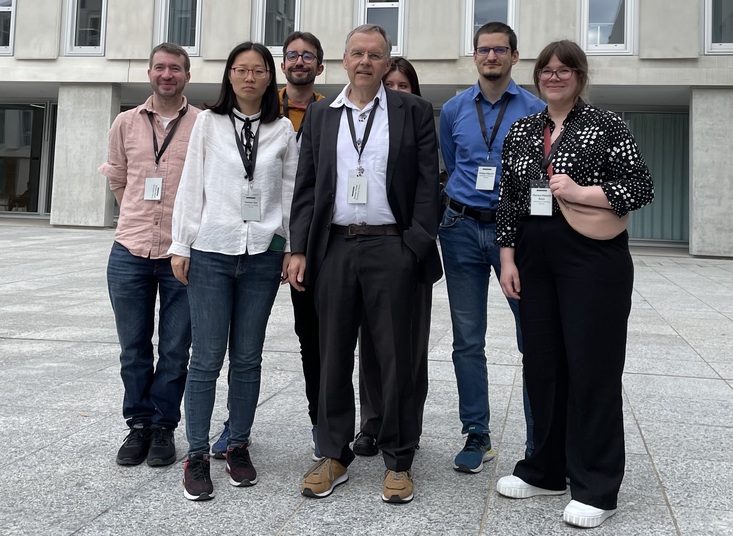Knowledge Technology at ICANN'24
27 September 2024

Our group members Xiaowen Sun and Philipp Allgeuer presented their papers at the ICANN'24 conference in Lugano, Switzerland. Here is more information about the papers:
Title: Details Make a Difference: Object State-Sensitive Neurorobotic Task Planning
Authors: Xiaowen Sun, Xufeng Zhao, Jae Hee Lee, Wenhao Lu, Matthias Kerzel, Stefan Wermter
Abstract: The state of an object reflects its current status or condition and is important for a robots task planning and manipulation. However, detecting an objects state and generating a state-sensitive plan for robots is challenging. Recently, pre-trained Large Language Models (LLMs) and Vision-Language Models (VLMs) have shown impressive capabilities in generating plans. However, to the best of our knowledge, there is hardly any investigation on whether LLMs or VLMs can also generate object state-sensitive plans. To study this, we introduce an Object State-Sensitive Agent (OSSA), a task-planning agent empowered by pre-trained neural networks. We propose two methods for OSSA: (i) a modular model consisting of a pre-trained vision processing module (dense captioning model, DCM) and a natural language processing model (LLM), and (ii) a monolithic model consisting only of a VLM. To quantitatively evaluate the performances of the two methods, we use tabletop scenarios where the task is to clear the table. We contribute a multimodal benchmark dataset that takes object states into consideration. Our results show that both methods can be used for object state-sensitive tasks, but the monolithic approach outperforms the modular approach. The code for OSSA is available at https://github.com/Xiao-wen-Sun/OSSA
Title: When Robots Get Chatty: Grounding Multimodal Human-Robot Conversation and Collaboration
Authors: Philipp Allgeuer, Hassan Ali, Stefan Wermter
Abstract: We investigate the use of Large Language Models (LLMs) to equip neural robotic agents with human-like social and cognitive competencies, for the purpose of open-ended human-robot conversation and collaboration. We introduce a modular and extensible methodology for grounding an LLM with the sensory perceptions and capabilities of a physical robot, and integrate multiple deep learning models throughout the architecture in a form of system integration. The integrated models encompass various functions such as speech recognition, speech generation, open-vocabulary object detection, human pose estimation, and gesture detection, with the LLM serving as the central text-based coordinating unit. The qualitative and quantitative results demonstrate the huge potential of LLMs in providing emergent cognition and interactive language-oriented control of robots in a natural and social manner. Video: https://youtu.be/A2WLEuiM3-s.


